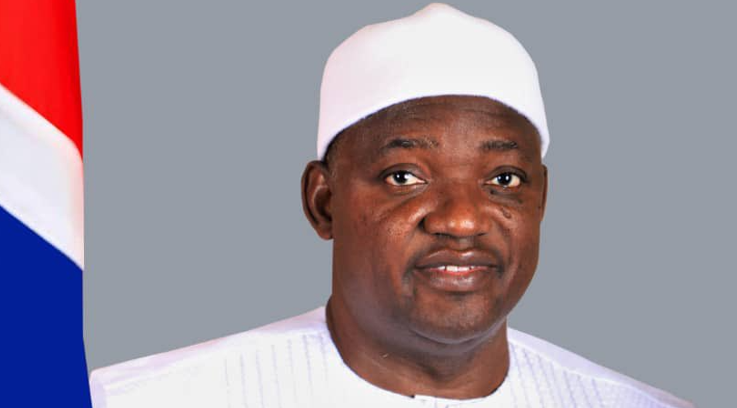Gambia to investigate controversial sale of Jammeh’s seized assets

The Gambian government has launched an investigation into the sale of assets seized from former President Yahya Jammeh, following public anger over alleged irregularities in how the items were handled.
Some of the luxury vehicles, livestock and other valuable goods were sold while a panel was still investigating the wealth Jammeh amassed during his 22-year rule.
The sales sparked outrage after a newspaper report accused senior officials of selling the assets to themselves, friends and family at below-market prices.
The investigative report, published by the Republic newspaper, went viral online and triggered protests in the capital, Banjul. Dozens of protesters, including journalists, were arrested but later released.
In a televised speech on Wednesday night, President Adama Barrow promised “full transparency” in the probe, saying, “Assets recovered belong to the people.”
He said he had called a cabinet meeting to discuss the issue, adding that some of the details were only just coming to his attention.
Barrow said both parliament and the National Audit Office were conducting separate inquiries. “Their findings will be made public, and my government will enforce their recommendations to address the shortcomings discovered and hold accountable any individual or entity found culpable,” he said.
He also warned that his administration “will not tolerate negligence, or any wrongdoing linked to safeguarding our nation’s resources.”
Barrow’s comments followed mounting pressure from the public after the government released a detailed list of assets that had already been sold.
The list included luxury vehicles, livestock, construction equipment, boats, land, and household goods, along with the names of buyers, prices and sale dates.
But some notable assets such as Jammeh’s customised Rolls-Royce and Bentley were missing. It remains unclear whether those vehicles were sold or allowed to be taken with him to Equatorial Guinea, where he has lived in exile since 2017.
The list raised more questions than answers, as many of the assets appeared to have been sold at unusually low prices. The justice ministry said the process had been legal, stating, “At all times, the government acted within the confines of the law and in the public interest.”
However, opposition leaders and rights groups have questioned the credibility of the investigations.
Opposition MP Yayah Sanyang called for an independent probe, arguing that parliament was “full of ruling party loyalists.” The Edward Francis Small Center for Rights and Justice demanded that the president take responsibility and freeze any further sales of seized assets.
In 2017, Barrow’s administration set up the Janneh Commission to look into Jammeh’s finances. The commission found that Jammeh had allegedly stolen at least 360 million dollars and spent lavishly on cars, planes and properties. It recommended the seizure of a wide range of assets linked to him and his allies.
Jammeh, who took power in a 1994 coup, has denied any wrongdoing. His supporters claim the investigations and asset seizures are politically motivated.
In 2022, the United States seized a mansion in Maryland believed to have been bought with funds looted by Jammeh. The US Justice Department said he had acquired at least 281 properties and operated over 100 bank accounts during his time in power.
